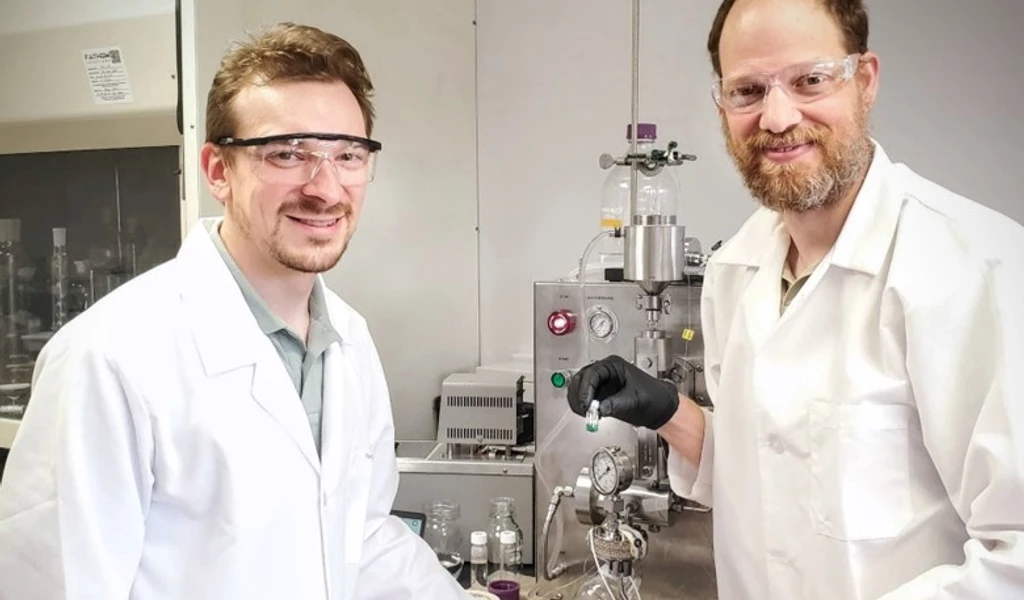UK joins global coalition searching for vaccines to keep the world safe from the spread of epidemics

Oslo, 22 January 2019 — The United Kingdom has pledged £10m in funding as part of a commitment to join the Coalition for Epidemic Preparedness Innovations (CEPI) and support its mission of developing new life-saving vaccines to combat emerging infectious diseases and prevent future epidemics. Following outbreaks of Nipah, Lassa and Ebola in 2018 this mission is more important than ever.
The commitment from the Department of Health and Social Care comes as CEPI celebrates the second anniversary of its founding at the World Economic Forum in Davos in 2017. The global coalition was formed in response to the devastating Ebola epidemic in West Africa, which killed more than 11,000 people. Since launch, CEPI has received more than $740m of funding from the governments of Australia, Belgium, Canada, Germany, Japan and Norway, as well as from the Bill & Melinda Gates Foundation, the Wellcome Trust and the European Commission.
CEPI has committed more than $270m in potential investment to nine partnerships that include academic and private sector R&D. These partnerships are developing 17 vaccine candidates against some of the world's most dangerous infectious diseases, including Lassa fever, MERS and Nipah. Further partnerships will be announced this year.
I'm delighted that the UK is joining the coalition and helping to fund our vital work. In a world characterized by increasing population density, human mobility, and ecological change, emerging infectious diseases (EIDs) pose a real and growing threat to global health security.
Epidemic diseases affect us all. They do not respect borders. If a highly contagious and lethal airborne pathogen with the characteristics of the 1918 ‘Spanish ‘Flu' were to emerge today, it is estimated that nearly 33 million people worldwide would die in just 6 months.”
British science and innovation is already making huge strides in the fight against disease and we are already working closely with teams from Oxford and Imperial on potentially game-changing new vaccine technology, as well as the UK Vaccine Network. Today's commitment by the UK government will support leading research that will help develop a new generation of vaccines with the potential to save millions of lives both here and abroad.”
Diseases like Ebola and Lassa Fever tear communities and families apart, causing untold amounts of harm and suffering. As a global community, we must keep trying to find new ways to beat diseases like this and making them a thing of the past. We have a proud history of being at the forefront of tackling diseases around the world, such as the Ebola outbreak in 2014, and will continue to do so by backing this vital work with CEPI to help protect people everywhere."
The costs of EIDs are vast, in both human and economic terms. A report prepared by the National Academy of Science has estimated that over 10 years, the global costs of epidemics could amount to $600bn. Even small epidemics can cause tremendous economic disruption.
Planning for EIDs is challenging: the R&D that is required for new vaccines is complex, lengthy and expensive. The market potential for such vaccines is limited and testing such vaccines is difficult.
CEPI is focused on advancing vaccines against known pathogens as well as funding new platform technologies that can accelerate the development of vaccines against previously unknown pathogens. Since its launch, CEPI has announced three Calls for Proposals (CfP). These will support candidate vaccines against MERS-CoV, Nipah, Lassa, Rift Valley fever and Chikungunya viruses, as well as advance rapid response platforms against unknown pathogens.
The commitment by the UK Government complements the Department of Health and Social Care's existing £120m investment into developing vaccines and vaccine technologies for epidemic diseases, made through the UK Vaccine Network (UKVN).
About CEPI
CEPI is an innovative partnership between public, private, philanthropic, and civil organisations launched in Davos in 2017 to develop vaccines to stop future epidemics. CEPI has received multi-year funding from Norway, Germany, Japan, Canada, the Bill & Melinda Gates Foundation, and Wellcome. CEPI has also received single-year investments from the governments of Australia and Belgium. The European Commission forsees substantial financial contributions to support relevant projects through EC mechanisms. CEPI has reached over US$ 740 million of its $1 billion funding target. Since its launch in January 2017, CEPI has announced three calls for proposals. The first call was for candidate vaccines against Lassa virus, Middle East Respiratory Syndrome coronavirus (MERS-CoV), and Nipah virus—to date, CEPI has invested over $270 million to develop five vaccine candidates against Lassa virus, four against MERS-CoV, and two against Nipah virus. The second call was for the development of platforms that can be used for rapid vaccine development against unknown pathogens. The third call is for candidate vaccines against Rift Valley fever and Chikungunya viruses.
Learn more at CEPI.net. Follow us at @CEPIvaccines.
About the UK Department of Health and Social Care
The UK Department for Health and Social Care (DHSC) is the UK government department which is responsible for helping people to live more independent, healthier lives for longer. The partnership with CEPI is part of the UK Vaccines Network. The UK Vaccines network is a UK Aid funded project which aims to support the development of new vaccines and vaccine technologies for infectious diseases with the potential to cause an epidemic so that outbreaks of such diseases can be prevented or controlled.
Media contacts
Rachel Grant, Director of Communications and Advocacy, CEPI
+44(0)7891249190 | [email protected]
Mario Christodoulou, Communications and Advocacy Manager, CEPI
+44(0)7979300222 | [email protected]


